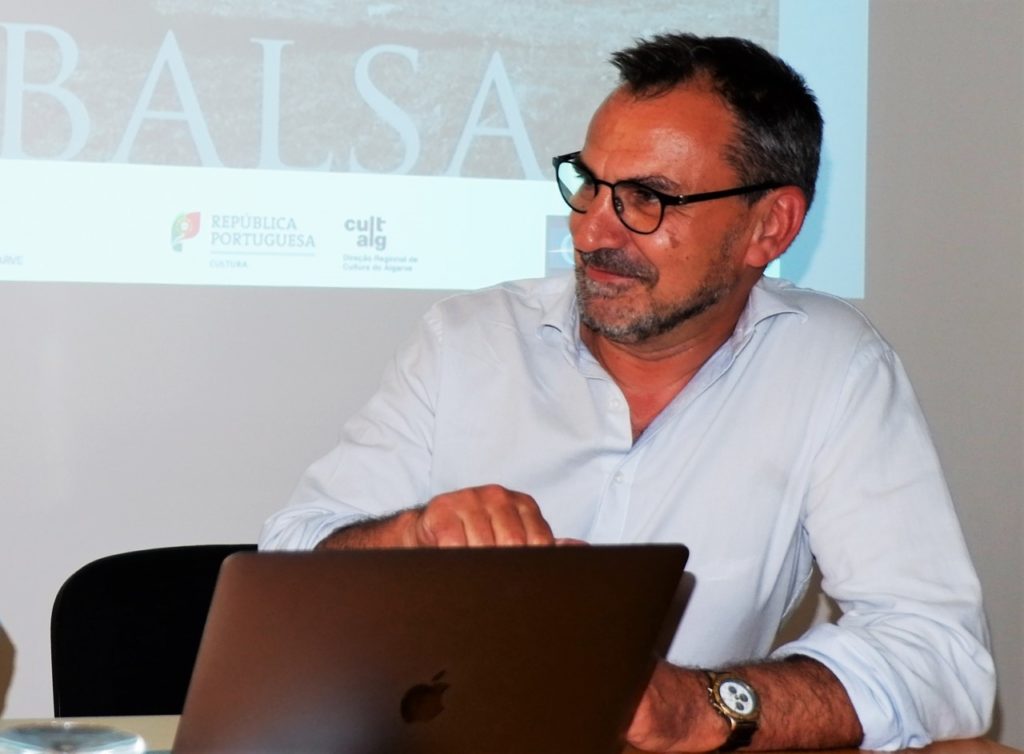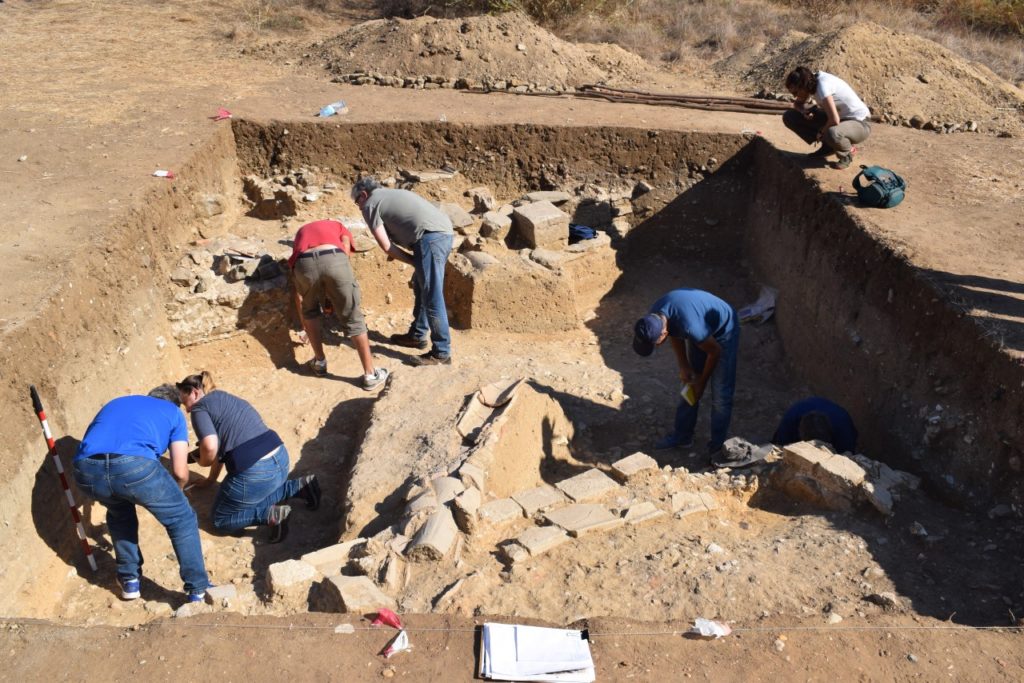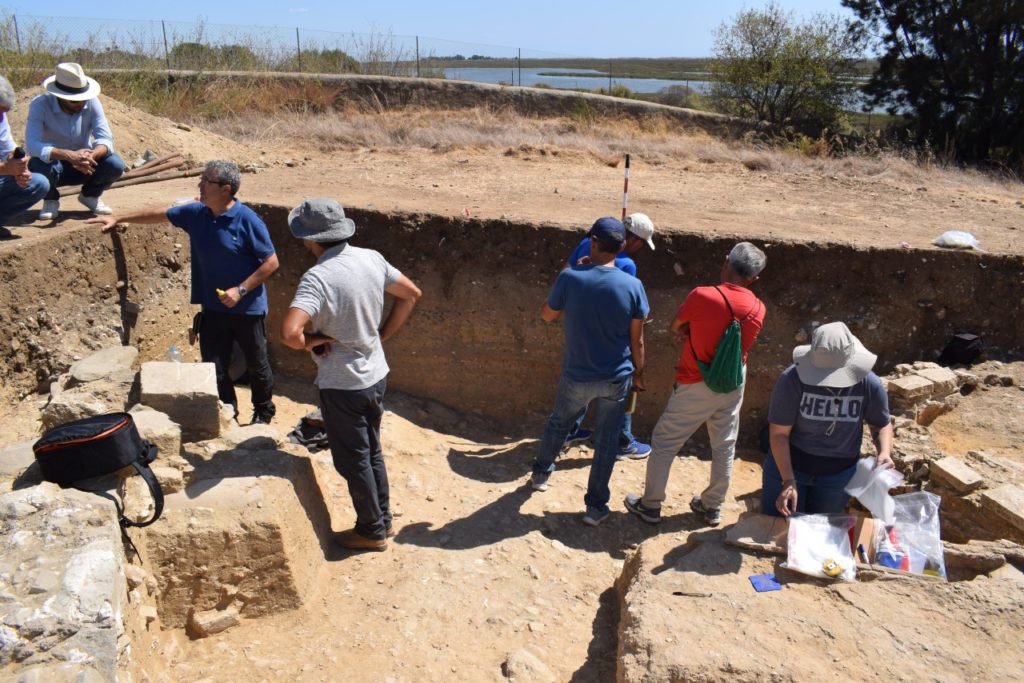Evidence of the existence of a tsunami, which is thought to have occurred in the late XNUMXnd or early XNUMXrd century and devastated the Algarve coast and the Roman cities there, could have been found in the archaeological site of Balsa, in Tavira, by a team of Spanish experts. For now, all there is is evidence, albeit "very promising", but scientists believe that the analyzes and studies that will follow may even scientifically validate this discovery.
Last week, a group of ten specialists, including geologists and sedimentologists, from the universities of Huelva, Seville and Barcelona, spent a day on the Balsa to see the polls that were carried out recently and, according to João Pedro Bernardes, archaeologist, researcher and professor at the University of Algarve, “they are convinced that there is, in fact, a record of a tsunami there”.
The researchers “collected a set of samples that they will analyze and date by radiocarbon. There will be a report later on. At the outset, in the field, the data is very promising. But scientific validation is now needed, through analyses," he told the Sul Informação João Pedro Bernardes, the project coordinator “Balsa – in search of the origins of the Algarve” – jointly promoted by the university, the Regional Directorate of Culture of the Algarve, the Câmara de Tavira and the Centro Ciência Viva de Tavira.

The research team that was in Balsa, made up of professors, researchers and some students, is involved in a European project that brings together Italian, Spanish and Portuguese scientists, «which aims to study the connection between the Atlantic ports, in the Roman era, and Rome ».
A professor from Huelva, one of those who was in Balsa these days and who had already been to that archaeological site before, is part of «a group of specialists who are trying to understand what happened here at the end of the second century, beginnings of the III, which devastates not only Balsa, but the entire coast of the Algarve and Andalusia».
“There are a number of situations, namely Mauris invasions, but what most affected these coastal cities was, it seems, a high-energy event, probably a tsunami. They have already managed to identify marks of this phenomenon in Andalusia. There is a city, Bolonia, near Tarifa, in which a great tsunami is well characterized, similar to or possibly larger than the one in 1755. Sul Informação João Pedro Bernardes, who accompanied the work of the Spanish team.
«It gives the idea that, until the second century, everything was going very well and, suddenly, there is a cut and everything is destroyed. In the third century, construction began on the ruins», he explained. What was discovered in the archaeological campaign that took place at Quinta de Torre d'Aires, in Tavira, between August 19th and September 5th, was precisely that: buildings from late antiquity built on top of the ruins of what would have been great buildings from the High Empire period, with reuse of materials.

The Algarve researcher also said that "there are references to the existence of this extreme event at the beginning of the third century" in the reports at the time, but he warns that these records "are not safe".
“The descriptions that come to us practically all originate in Rome. And, often, what those who write them know about the provinces, namely the most peripheral ones, such as Lusitania, comes to them through reports from merchants and things are always very vague», he said.
During the day they spent on Balsa, the Spanish researchers “collected many samples – shells, bones, etc. – to do a set of analyses. They say that that area of Balsa has exceptional conditions to detect this type of thing. Although this is not very different from Andalusia, it is better preserved».
Now, it's time to wait for the results of the investigation that will be carried out to find out if this mystery surrounding the Roman occupation of the Algarve is unveiled by the secrets that the ancient Ferry hides.



















Comments